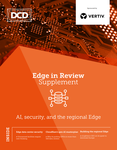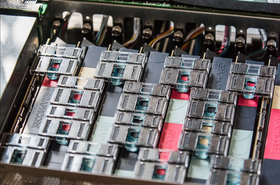Over the past year, AI has justly dominated the news cycle for its potential to revolutionize life as we know it. Whether it was the media covering the UK government’s highly anticipated and hotly debated AI Summit, or reporting Elon Musk’s suggestion that AI might render all jobs obsolete and even cure loneliness through AI friendships.
Many experts agree. A 2023 Goldman Sachs report found, for example, that “two-thirds of current jobs are exposed to some degree of AI automation, and that generative AI could substitute up to one quarter of current work… Generative AI could expose the equivalent of 300 million full-time jobs to automation.” There is little doubt AI’s rapid growth will continue unabated in the years ahead, transforming our professional and personal lives forever. But it needs one key ingredient: data.
According to IDC, the Global DataSphere is expected to generate 291ZB of data in 2027, while Gartner expects generative AI to account for 10 percent of all data produced by 2026, up from less than one percent today. Hard drive manufacturers, and the industries they serve, will need to brace themselves for the data explosion and be equipped to deliver on the escalating demands of the booming AI industry.
From the intangible to the tangible
Let’s first consider the symbiotic relationship between AI and the cloud. AI is leading cloud computing into new realms of innovation, whether it is digital assistants, autonomous vehicles, or medical breakthroughs. The sky really is the limit. As everything moves to the cloud to provide the resources and infrastructure for AI, we mustn’t forget that, however intangible the cloud might sound, it still needs physical hard drives to store the data for which AI is ravenous.
AI’s dependence on data will mean greater demand for cloud data storage from individuals, businesses, and organizations worldwide, which means surging demand for hard drives, as the backbone of cloud data storage.
More data = more data centers = more data storage
Seagate's Multicloud Maturity report revealed that companies with a high level of maturity in storing and managing data in a multicloud bring new solutions to market six times faster than competitors with a lower level of maturity. Tech companies and cloud service providers are rapidly investing in new data centers around the world to keep pace with the surge in data demand, driven by AI, to serve their cloud customers and help them gain that competitive advantage.
Hard drive manufacturers need to keep up with this proliferation of data centers and ensure they can produce drives as fast as AI consumes the data they store. The question is: is there a risk of disruption to their hard drive supply chains in the process?
Futureproofing the manufacturing industry
The answer is potentially yes, and for several reasons, which go beyond a spike in demand. Recent history has shown that the industry is at the mercy of global events beyond our control, such as the pandemic, ongoing geopolitical conflict, natural disasters, a shortage of both raw materials and electronic components, and more. They could all have a negative knock-on effect on the global hard drive supply chain.
For example, back in 2011 when the devastating floods in Thailand - then the second largest manufacturer of hard drives after China - had a catastrophic impact on the availability and pricing of hard drives for years after. Factories across the country were forced to close and parts became scarce. Another example is 10 years later, when there was a global shortage of processors required for hard drives during the Covid-19 pandemic. Hard drive manufacturers need to act now to futureproof their businesses to expect the unexpected.
Ramp up or become more resilient
Manufacturers will be forced to prepare for exploding demand by ramping up their production levels or making their supply chains more resilient. For instance, by using a diversity of suppliers and supply locations; by creating alternative plans for transport and logistics; and, most significantly, by playing their part in conserving finite natural resources. Such as through adopting a reuse, refurbish, recover, and recycle approach to their manufacturing processes to support their sustainability goals and obligations.
From challenge to opportunity
The inevitable rise of AI brings with it a data explosion that we couldn’t have predicted even 10 years ago. Therefore, the data storage industry needs to take critical steps now to equip itself to continue to satisfy AI’s data hunger. But the optimists among us can see how this could become a golden opportunity to be embraced, rather than a challenge to be tackled. Hard drive manufacturers now have the power to turn what could otherwise be a potentially disruptive time in their history into the prospect of delivering more drives at prices more customers can afford.





